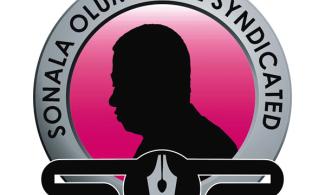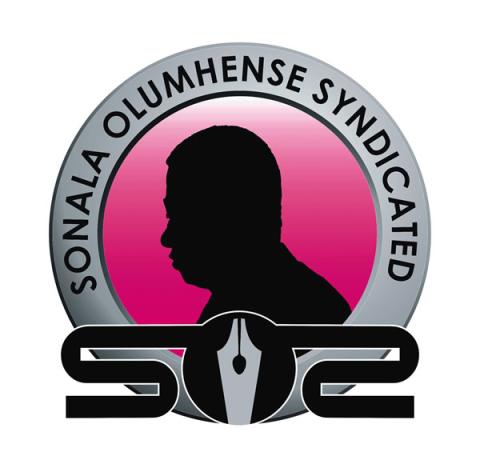
On February 16, 2015, Olusegun Obasanjo, former Nigeria President and former chairman of the Board of Trustees of the Peoples Democratic Party (PDP), publicly destroyed his party card.
Up until that day, and especially in the 16 years of his pervasive presence in the PDP, the party had resolved even the most heinous allegations against its members “internally”, and as a superior authority to the country’s legal and moral code.
Wielding its cudgel as ‘Africa’s biggest party,’ some of its top members were persuaded or coerced into swallowing their grievances. Hefty contracts helped to assuage feelings and to bury ill-will, invariably at the expense of the broader national interest, and certainly to the chagrin of the opposing political parties.
Under that code, particularly under Obasanjo, such key federal agencies as the police and the so-called anti-corruption bodies clearly placed the interest of the ruling party over those of Nigeria.
Partly as a result of those practices, the PDP could gain no focus. In place of anything that could be politically nutritious to the country, it substituted a system of primordial favours. There were no standards; conflict and contradiction reigned.
Under that template, Nigerians could see that the party was ailing, but the party bragged about its reserves of strength, and spoke of a lifetime ahead.
Part of that rot was why Obasanjo left the party. But the party did not leave Obasanjo; it didn’t accept his criticism because he had embodied the party at its worst. He had championed its most heinous excesses. He was the face of the party.
Indeed, he was the symbol that the party would “rule forever”. In 1999 in Odi, Bayelsa State, he demonstrated his readiness to deploy ruthlessness, including the military variety, to shut up an irreverent community. Within four years in the southwest, he destroyed the Alliance for Democracy and replaced it with the PDP. In the elections in 2003 and 2007, he consolidated the depth and depravity of the PDP.
Then he left, and early last year, had the card ripped to shreds.
That action, and his official expulsion from the party a few hours later, meant there was no going back to the party, which he had used intensively, and which had used him extensively. The PDP had often described itself as a “family”, somehow suggesting it was superior to the national interest, and answerable only to itself.
With the former President’s symbolic destruction of his party card, that “family” was in tatters. Just one month thereafter, it lost the presidency.
Let me put that differently: one month after the card incident, the All Progressives Congress (APC), seized the centre from the PDP. It had campaigned loud and long on the excesses and weaknesses and wickedness of the PDP, and the message seemed to have resonated with Nigerian voters.
In May 2015, APC assumed federal governance swearing it would not become the monster it had supplanted. In effect, it would not rot under its own weight.
That was just one year ago.
To be fair, APC inherited many a problem created by the PDP. But that is the nature of politics: to win an election is to commence work on what you inherit, whether at the top of the mountain or at the bottom of the valley, rather than the one you wished you had inherited.
Besides, over the years, the APC had enjoyed the opportunity and the motivation to learn from the PDP, a gift we cannot say the PDP itself had in 1999.
Which brings me to the current tragedy at the National Assembly, with particular reference to the House.
The House is in turmoil, as the entire world now knows, because of budget-padding allegations made by a key member: the former chairman of its Committee on Appropriations.
I am not mentioning his name. Nor shall I mention the names of several officers of the House he has accused of a variety of corrupt activities, of which padding the 2016 budget is the beginning.
I am refraining from names as a small contribution to the need to focus on the issues rather than the persons.
This member made his allegations against the Speaker and the others publicly. He took to the authorities the allegations, complete with his “evidence”, asking the anti-corruption and security agencies to investigate them.
In those 15 years of the PDP, where the accused was usually a PDP card-holder, the PDP would have laughed the matter off the front pages. In the PDP template, the matter would have been “resolved” within the family, no matter how serious the allegations.
Sadly, this is a template that the APC appears to have dug out of the PDP archives, the party asking the accuser to shut up or else.
In a statement last Monday, APC Deputy National Publicity Secretary Timi Frank alleged that the accuser had flouted the party’s order to desist from further public utterances, and that he was disrespectful of senior party officials and even the president. Mr. Frank demanded of the man, silence or “his excesses will be made known to Nigerians and the whole world.”
It was little surprise that the principal accused, right after that and following a visit to the President, declared he did not know the meaning of padding, nor could it possibly be an offence under the law.
That sounded familiar. PDP-APC.
Nor was it a surprise that the presidency then declared that the budget was not padded. Presidency officials Ita Enang and Ismail Kawu told the APC leadership in Abuja that the budget was pad-free. To confirm that the PDP template is now fully operational in the APC, Mr. Enang declared: “For now, the party is handling it as a domestic issue; a party issue.”
PDP-APC.
On Thursday, as APC blundered around in the dark, Lawal Shuaibu, its Deputy National Chairman, said neither accuser nor the accused would be sanctioned by the party, a gamble evidently aimed at “family” settlement. The party had the power to do certain things, he said, but what it chose to do would not be revealed to the public.
PDP-APC.
Anyone paying attention would recall that in March, President Buhari redeployed 184 senior officials, including 22 directors of the Budget Office, as “punishment” for their role in padding the 2016 Appropriation Bill, which was at that time before the National Assembly. Weeks earlier, the president had also fired Yahaya Gusau, the Director-General of the Budget Office, following extensive and embarrassing irregularities unveiled in the bill that had been sent to the legislature.
Redeployment as punishment. PDP-APC.
Last week, the EFCC and the police were talking about their “investigations” of the potent allegations that continue to emanate from the accuser, allegations that, in the circumstances, have somehow begun to morph into accusations against the APC itself. The dragon-slayer, it seems, is becoming the dragon.
It is curious that this party, which claimed to be the anti-PDP, seems to believe it will survive the same playbook which consumed that party.
The difference seems clear: if change is a mirage, will it be succeeded by anarchy?
[email protected]
Twitter: @SonalaOlumhense
